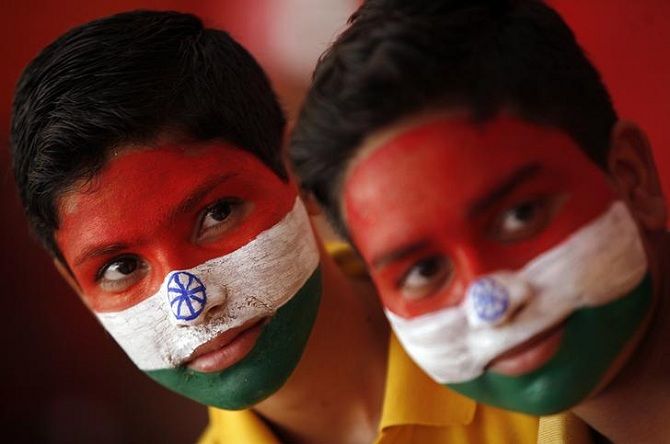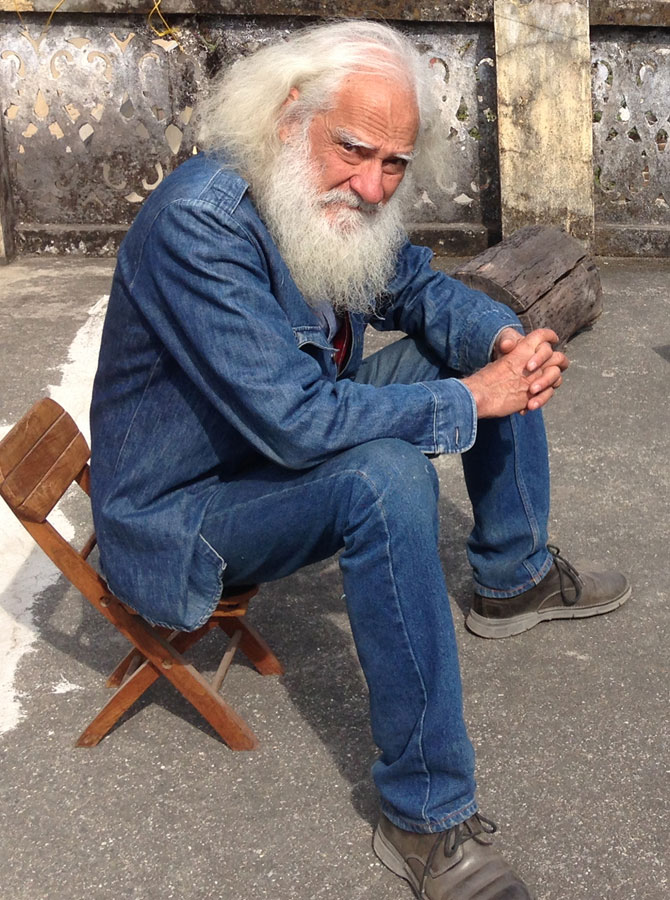'The national anthem and Vande Mataram deserve to be respected, but binding people by rules can't ensure patriotism.'

Former Cabinet Secretary T S R Subramanian tells Veer Arjun Singh that while he respects the spirit of the Madras high court ruling that Vande Mataram should be played in educational institutions and workplaces, he does not believe patriotism can be forced.
What are your views on the Madras high court ruling for Tamil Nadu?
While I respect the spirit of the ruling, I am critical of its application.
Such a directive from the court should have been for the whole country, if at all, and not just for Tamil Nadu.
We have the national anthem that is sung and respected across all states, while Vande Mataram is unofficially the national song.
By asking to play it regularly in every classroom and every office, the court is certainly overdoing it.
The court in its ruling said 'Patriotism is an essential requirement for every citizen of this country'.
This comes after the Supreme Court's ruling that mandates playing the national anthem in cinemas.
Are such rulings forcing people to prove their patriotism?
I believe that most people in India are patriotic, while they may not be overly demonstrative about it.
Love for one's country is something that comes naturally and can't be forced.
The national anthem and Vande Mataram deserve to be respected, but binding people by rules can't ensure patriotism.
In my view, it is not to be brought to the bazaar by saying that every shop and every courtroom will sing it every morning.
There have been cases where people who refused to stand up for the national anthem were branded anti-national and beaten.
Do such directives encourage vigilantism?
Maybe a person who did not stand up for the national anthem was injured, physically incapacitated or hard of hearing.
People who do it out of disrespect should be socially ostracised, and, in worst cases, even reported to the authorities. But their actions should not be seen as a criminal offence.
A fellow citizen can express his or her disapproval, but by no means should people take the law in their own hands.
If a person shouts slogans against the country from the rooftops of Jawaharlal Nehru University, he or she should be charged with sedition, no question about it, but vigilantism should be strongly criticised.
Do you think influential people in high posts are invoking patriotism to suppress opinions, criticism and humour?
Is it anti-national to criticise a ruling government, the army or the judiciary?
The army that protects us and the judiciary that empowers us should be dealt with utmost respect.
While I have the highest respect for the judiciary, I criticise its delayed judgments and I write about the need for judicial reforms.
Similarly, there has been corruption in the armed forces and reports of scandals involving high-ranking officials.
Every Indian has the right to criticise the country's highest institutions.
Transparency and public scrutiny is important.
The Philippines recently passed a bill making it illegal for its citizens to not sing the national anthem.
Nobel Laureate Liu Xiaobo, who was critical of the Chinese government, died in prison.
Can deploying fear of the law ensure love for one's country?
Nothing can be ensured by using force.
I will despise a person who is unpatriotic, but taking harsh action against people who are criticising their country is a sign of weakness.
India is a strong country and should stand against such acts.
In an opinion piece on education in India, you said 'Politics is permeating every aspect of educational administration'.
Do you think making changes to invoke patriotism in the younger generation is taking the focus away from real educational reforms?
I think that a debate on patriotism or Vande Mataram, per se, is not required.
There are insufficient debates on what is affecting the country like poverty, preventive medication and education.
Our government, Parliament, media and judiciary are not paying attention to these vital subjects.
How would you define nationalism?
Nationalism or patriotism is the respect for a country that people have in their hearts.
I believe that most Indians are patriotic, while they may not show it all the time. But there are also people in the country who are not very patriotic.
We can't control every mind and we can't expect everybody to think in the exact same way.
We should accept and accommodate different views.
IMAGE: School boys in Jammu participate in Independence Day celebrations. Photograph: Mukesh Gupta/Reuters











